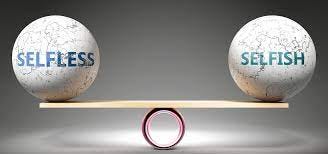Now But For Later
Delayed Gratification
For the better part of my adult life, I have had a voice in my head that called me selfish. I never heard it in a malicious tone. It always manifested in relation to starting my family. In the world that I inhabit, so many of my peers began having children soon after college and certainly in the 13ish years since I have graduated.
That voice nagged me. “If you don’t want to have children yet, you must care more about your self than these other people.” The truth is, there’s some truth to it. I have valued my independence. I have enjoyed making my own schedule, traveling when I want, and staying in when I want. That agency was invaluable.
So in these nascent days of parenthood, that transformation has felt tectonic, sudden, and cumbersome. While I do have some agency via a show watched or a shower here and there, overall I have felt that loss acutely. As I have tried to process through it and remind myself that everything is temporary, I was also heartened by something in this week’s portion, Va’yera.
As we reread the binding of Isaac narrative, we note how God gives us all the details as if trying to emphasize how big of an ask this is going to be:
your son, your only son, that you love.
I always picture it being said slowly with a pregnant pause after each word, God deeply observing Avraham’s reaction to see what he’s going to do.
Each year, maybe we expect something different because of how emotionally charged this moment is. We can’t wait to see what he’s going to say and then:
וַיַּשְׁכֵּ֨ם אַבְרָהָ֜ם בַּבֹּ֗קֶר-Avraham woke up early
Not just that he gets up but what we might said is “bounds out of bed”. There was no snooze button for Avraham. Why is he so intent on running into this day and what are we missing with his lack-of-response?
The Rabbis of the Midrash love to fill in gaps of dialogue when they are expected but don’t appear in a text. Here we have a great example of this. In a moment after Isaac’s near sacrifice, when we’re told Avraham calls this place Adonai Yireh, God will see, we are left wondering what is it exactly God will be seeing here? After all, the event with all its drama already took place. So in Bereishit Rabbah, the Midrash imagines the following question:
“Sovereign of the universe! When you did order me, ‘Take your son, your only son’ (Gen 22:2), I could have answered, ‘Yesterday you promised me: “Through Isaac shall your descendants be named” (Gen 21:12), and now you say: “offer him there for a burnt offering” (Gen 22:2)?’ But, God forbid, I did not handle it so, but suppressed my feelings of compassion in order to do your will. Even so, may it be your will, O Lord our God, that when Isaac’s children are in trouble, you will remember that binding in their favor and be filled with compassion for them.”
This is both a moment in the present where Avraham is proving something to God but it’s also a moment where Avraham is banking something for the future. When the going gets tough down the road with my progeny, when they’re acting up and you get angry and you want to do that thing that you do, remember this moment and bring compassion to them on my behalf for my sacrifice here.
It’s a powerful and slightly brazen reframing of this encounter. Abraham is acting in this moment in order to provide something for his family down the road.
We all go through these transitions in life where we slowly come to the realization that it’s about much more than just us. We’re doing things for those we love and those we don’t even know who we love. I am doing all of this stuff now, not just for myself, not just for Lauren, but for Cal, this new being that we brought into this world.
He didn’t ask to come into the world. I owe him a better world. In those moments when I find myself reluctant to transform, this has helped assuage my anxieties. What I am doing right now might not be felt in an instantly gratifying way but I have faith that it will be felt by Cal and whomever else down the road.
We can go about our business in this world just tending to ourselves. Sure, there is meaning in that. But so much of the most powerful work that we do involves a moment of self-sacrifice in order to make it better for someone else. I also don’t think this only applies to those with children. This work applies to anyone working on behalf of anyone else and their future. For me, I need this gentle Divine nudge that came from parenthood.
My hope is that if enough of us can do the work now, for later, then we can ensure that maybe the road will be a little more smooth for those that follow us, which is a beautiful act of kindness.
Shabbat Shalom and Happy Weekend!

